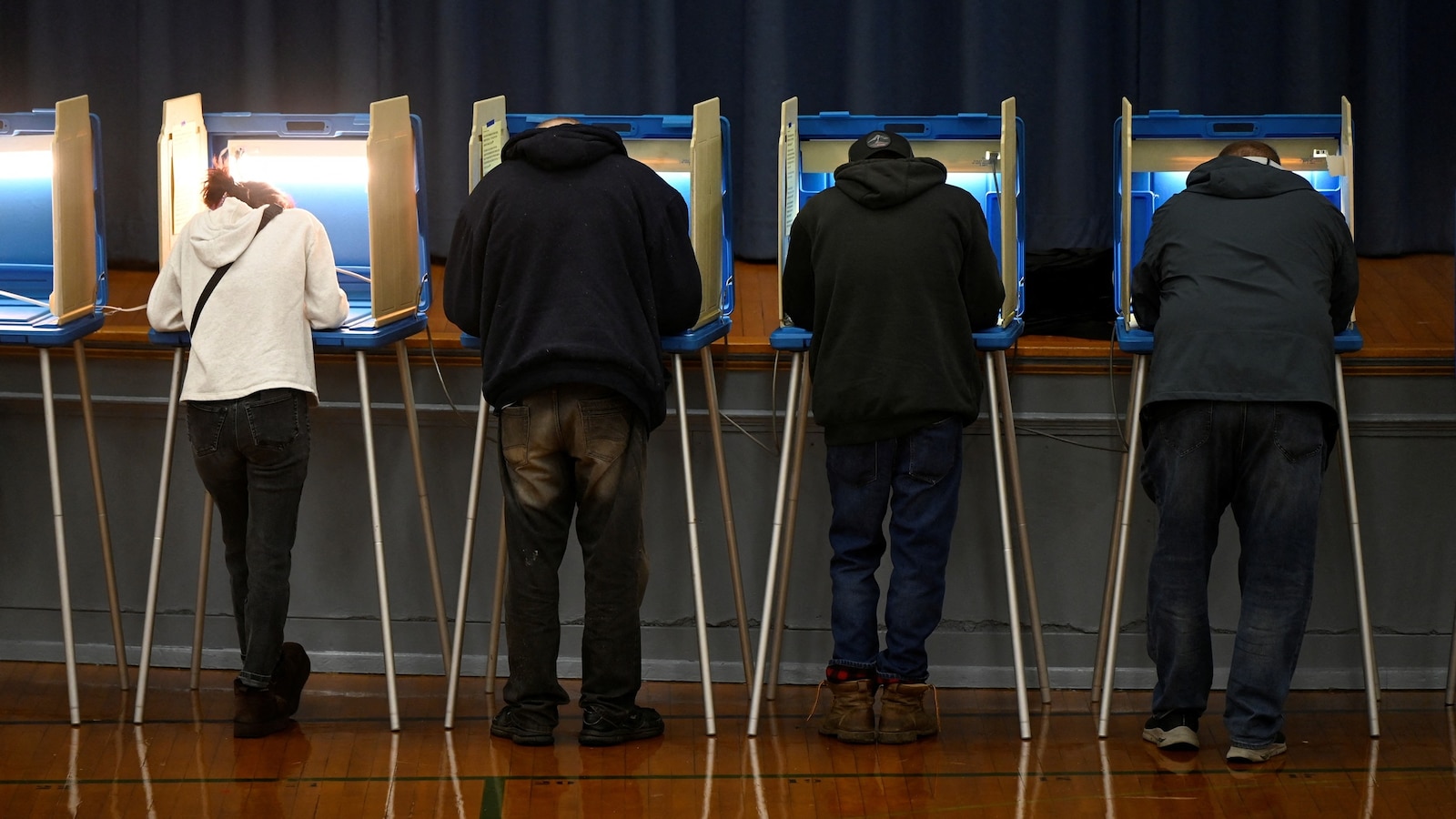It sustained relentless attacks on its integrity up until the moment a winner was declared.
In the end, the U.S. election system passed a critical test in 2024, after months of widespread public concern about the security of ballots, accuracy of the count, and timeliness of results.
“I hope we can lay to rest the question about the integrity of the American electoral system,” President Joe Biden said in a national address Thursday. “It is honest, it is fair, and it is transparent, and it can be trusted, win or lose. “
To be sure, Biden (and most Democrats, according to polls) never doubted the integrity of the system. It was former President Donald Trump and his Republican supporters who for years embraced unsubstantiated conspiracy theories to believe the system is rigged.
Until polls began to close on Nov. 5, Trump was still raising unfounded claims of fraud. Then, suddenly, he dropped the subject when it became clear he would win.

Former President and Republican presidential candidate Donald Trump speaks during an election night event in West Palm Beach, Florida, Nov. 6, 2024.
Jim Watson/AFP via Getty Images
State election officials nationwide — members of both political parties — have since resoundingly reported no systemic disruptions or signs of widespread fraud emerging in the general election.
“Battle-tested,” declared Georgia Secretary of State Brad Raffensperger, who was at the center of the partisan battle over 2020 election results. “That just shows you the resilience of our system and our people.”
The relative seamlessness of the election process followed weeks of warnings about threats of interference by foreign adversaries, potential disruptions from artificial intelligence, armies of partisan poll watchers, and unprecedented pre-election litigation.

Election workers review ballots at the Denver Elections Division in Denver on Election Day, Nov. 5, 2024.
Chet Strange/AP
The Cybersecurity and Infrastructure Security Agency (CISA), which is responsible for tracking threats to the vote nationwide, said there was “no evidence of malicious activity impacting the security or integrity” of the election and only “minor” disruptions from outside influences.
Non-credible bomb threats of suspected Russian-origin were lodged in at least four states, briefly disrupting operations in some places, but not derailing the vote.
Dustin Ritchie votes with his daughter in the U.S. presidential election on Election Day at the Douglas County Central Assembly of God polling location in Superior, Wisconsin, Nov. 5, 2024.
Erica Dischino/Reuters
Equipment malfunctions and garden-variety human errors caused long lines and processing delays at a smattering of polling places nationwide; those happen every year.
Civil rights advocates cited only isolated instances of alleged voter intimidation or discrimination, despite a wave of new GOP-sponsored legislation in dozens of states tightening requirements for mail ballots and voter ID.
To many observers, the urgent efforts of patriotic and nonpartisan local election administrations to modernize voting equipment, improve transparency, and educate the public on procedures deserve credit for building trust.
Many of those election workers performed their duty in a highly stressful environment, often with their personal safety at risk.
They “busted their necks and took risks,” Biden said in his remarks. “Thank them for staffing voting sites, counting the votes, protecting the very integrity of the election. Many of them are volunteers who do it simply out of love for their country.”
One measure of their success: the absence of lawsuits contesting vote procedures or election results processing and certification. After the most litigated pre-election period in history, neither party has any major pending post-election litigation in state or federal courts.

